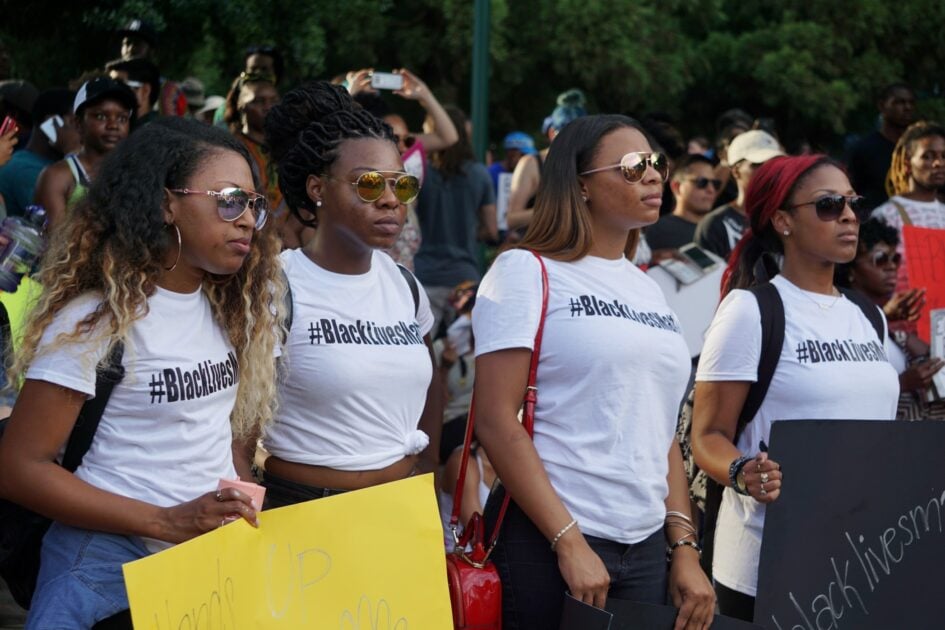How to organise a protest
Protests can be an effective way of getting media coverage for your cause

Marching is a common form of protest, where a group of people, sometimes small, other times made up of thousands, gather to demand changes or to challenge the actions of those in power. The march often begins or ends with a rally where activists can be asked to give short speeches or perform. Marches can be an effective way of guaranteeing media coverage for your cause because they usually cause disruption by shutting down streets.
Recent protests in Ireland
There are often marches and demonstrations held in Ireland for a number of causes. These have included marches for housing rights, reproductive rights, and climate change.
A recent example is the demonstrations held in response to the death of George Floyd, a black American man in Minneapolis, Minnesota, who died after having his neck continuously knelt on for almost nine minutes by a white police officer. Demonstrations have been taking place around the world, demanding justice and change to the racist structures that make up our society.
In Dublin, a march took place on Monday the 1st of June from O’Connell Street to the US Embassy in Ballsbridge, protesting against the death of Floyd and the treatment of black people globally. As part of the march protestors chanted “Black lives matter, no justice no peace” and when they reached the embassy the crowd also took part in a minute of silence.
Another example of this type of demonstration is when thousands of people took to the streets of Dublin, Cork, Galway and London in memory of Savita Halappanavar, in November 2012. Savita died following a miscarriage at University Hospital Galway; both the Indian and Irish community rallied together, holding vigils and marching to mark her death.
Things to consider when organising a march
If you are organising a march, it’s important to work out the details in advance to make sure you know where you want your march to go, and to get the word out about the demonstration. It is more likely to be successful if it is well organised.
COVID-19 restrictions
Organising an event or a gathering under the current COVID-19 regulations is not allowed without a “reasonable excuse”. It is up to Gardaí to decide what a reasonable excuse is. This means that if they decided it was right to do so, they could allow small protests which practice social distancing to go ahead. The smaller the protest and the more social distancing measures that are practiced, the more likely Gardaí may be to allow it to take place. If you wanted to organise a protest which followed social distancing guidelines, it would mean arranging lots of small groups of four people, who practiced social distancing within 5km of their home. After the 8th of June protests can take place within 20km of people’s homes.
Size
Decide what size of march you wish to organise. Having 100 people march through or gather in your local town can be just as effective as having 10,000 march through a big city.
Routes
Check out a few possible routes and how long it will take to walk. A mile long march is a useful marker. A common route is to start on the outskirts of a town and march to a town square or central place where a rally is held.
Contact the Gardaí
It’s important to contact your local Garda station and speak to someone in charge of public events. Be confident on the phone and remember it is your right to peaceful public protest. Inform the Gardaí when and where you plan to organise the march and what route you will take. This is very important as the Gardaí can then re-direct traffic and allow your march to pass through safely.
Contact local relevant organisations
The term “nothing about us without us” is a phrase used by minority groups such as LGBTI+ people, migrant groups or those in the Travelling community. The term expresses the importance of speaking with and asking the advice of the group you may be trying to help before organising anything. For example, if you would like to organise a protest against Direct Provision in Ireland, it would be important to contact a local Direct Provision advocacy group to ask them for their input on the idea. By doing this you can ensure that what you are planning is genuinely helpful to the group you are trying to support.
It’s also important to follow their lead. If they are already planning a protest or demonstration, consider combining forces and protesting together, rather than separately. There is strength in numbers, but it also shows that you care about their input and their experiences.
Ten tips for organising a march:
- Make sure your march is well advertised, social media is a great platform to spread awareness of your march so try and use it to your advantage
- Get in touch with local organisations of the cause you are organising the march for and ask them for their advice on the event
- Organise an evening before the march to make a large banner and placards
- Make up some chants and get some loudspeakers you can use on the day
- Get a core organising group to meet before the march to make sure there is someone to deal with the media and keep in contact with the Gardaí
- Organise reflective vests for stewards (supervision and safety). You might want to get a few older experienced adults on board to help out and lend advice on the day of your march.
- If the march costs your group money for materials or you would like to raise money for your cause as part of the march it is a good idea to do a public collection using buckets
- Organise a rally in a highly visible public area where your march will finish up
- Invite politicians and key supporters and musicians/poets and give them each five to ten minutes max to speak or perform for the cause
- After the march and rally is over, make sure you have a dedicated clean up crew and people to store banners, placards, loud speakers and any collection you’ve made
Need more information, advice or guidance?
We offer information, advice and guidance about the issues that matter to you. Our online Youth Information Chat service is for 16 to 25 year olds and is available Monday to Friday, 4pm to 8pm (excluding Bank Holidays).






